In this article, I will be using the word “queer” as an indicator to represent the diverse 2SLGBTQIA+ community.
Comedy is such a beautiful thing; it helps us take our minds off of the hardness of the day, it tells us relatable stories so we feel less alone, it makes us laugh until our heads get light and our bellies ache. Comedy has healing abilities, it is there for us even at our lowest. Comedy, above all else, is a storytelling, life-sharing experience that allows others to express and create through the lens of their own personal lives.
When comedy is presented to a cis-het person, there isn’t much to worry about when it comes to seeing a comedy show, but to those in the 2SLGBTQIA+ community, there is a layer of history and opinions that board up the front door to accessible local comedy. For queer people, comedy has not always been a safe, healing space.
Throughout many years, spanning over a multitude of industries, queer identity and expression have been targeted, mocked, and ridiculed; using sexual orientation or gender identity as a punch to add emphasis. This problem exists in many fields, but majorly in our comedy community, allowing cis-het performers, oftentimes men, to use being queer or queer slurs as an added “risk” in their sets. This method of comedy creates roadblocks for members of the queer community and other minority groups from participating, or even becoming performers themselves. The threat of being the butt of the joke forces queer people to navigate the world of comedy actively trying to avoid a situation where their identity and expression has been targeted.
But where there are roadblocks, there is new terrain being laid. Queer expression in comedy is booming, and with more openly queer performers coming onto the scene, we are seeing a major shift in how the queer community is reference and referred to in sets.
Although we have a horrid history with queer-targeting in our comedy history, we also have queer comedians who are coming into the space to not only tell jokes but to also share their stories about being queer. Having queer comedians showcased in our community can help in many ways. For example, the amplification of queer comedy and the presence of queer comedians on stage will help inspire more queer performers to try comedy, creating a safe space to explore. Comedy, whether it be stand-up, sketch, or music, can be quite a scary thing to jump into, especially for those who are in the 2SLGBTQIA+ community. Seeing queer comics break out and perform on stage creates an incentive for others to join them, creating a safer space. When comedy spaces become more inclusive, it prompts more people from all different communities to come join in and diversify not only our comedy scene but the content that is put out.
Along with creating safer spaces, the amplification of queer comedians’ voices in the community can help those who are in different stages of their queer journey. Often, queer comedians include personal stories of coming out, first dates, first queer sexual encounter in their sets, which can be very helpful to those who are in the audience curious about how they can come out to their parents, or what to expect when going on a date.
The sharing of information has been passed down throughout all walks of life through storytelling and folktales, teaching lessons, and giving words of advice; this is the same for comedy. When comedians tell jokes, they often recall moments in their life that went wonky or have a message that is important to the comedian to share and amplify growth and understanding. These stories that are translated through the comedic lens can actually help many struggling with a similar situation, or lend warmth and comfort to someone who has had a similar experience.
Queer comedians also use comedy to help figure out their own path and identity. Comedy on the outside is fun, light, thrilling, but in the gut of comedy lies vulnerability; allowing pieces of yourself to be exposed so that people can relate and laugh in shared experiences. For a queer performer, this can awaken more discussion about who they are, helping grow not only as a comedian but as a person.
Being a queer comedian in St. John’s, Newfoundland is not always the easiest. Being a woman/non-binary comedian in St. John’s is also not the easiest. It just so happens that I fit under both of those categories. From my personal experience, I have been told I am not a comedian, I have been denied a safe space to perform in, I have been at shows where comedians use queer slurs, and I have been the subject of cis-het male comedians conversations when I speak out about these injustices.
There needs to be a massive shift in our comedy community in order for every person to feel safe, or this community will further suffer in diversity. Newfoundland is a comedy hub; we have our own unique and beautiful way of performing, speaking, and writing which nourishes our comedy scene. We have reclaimed who we are as Newfoundlander and Labradorians and used our comedic voices to propel us into the comedy world.
I had the privilege to perform in Chicago in 2019, and it was magical to feel that even miles away from home, our comedy was still accepted and enjoyed. We have a universal language in comedy, and that doesn’t stop at the borders of cities, provinces, or countries. But until we nourish our scene and make it safe for all the diverse comedians we have in our province, the world will see less of us. And isn’t that a shame?
Queer expression in comedy not only creates a safe place in the community for those who identify in the 2SLGBTQIA+, but normalizes the use of queer language, the normalization of pronouns, the way we speak about the queer community, and the way others who are not members speak about it.
Queer comedians lead the way in setting the groundwork for the obliteration of using queer-baiting, discriminatory language, and slurs as a way to seem riskier; teaching cis-het comedians that if you have to rely on bringing down someone, or a group of people, that in itself speaks to your approach to comedy. You can be funny without being a bully and if you do use that crutch, don’t call out someone for being offended. You learn from your experience, not calling them sensitive. Every person is born with the ability to laugh and make others laugh. Comedy does not belong to a certain group.
Queer comedy is a comfort for those who are fighting to be heard, and it gives a space for queer people who want to share their stories, their trauma, their history in a way that makes others feel happy. The diversification of comedy allows everyone to heal and be heard.
You can check Stef and some of her work on Twitter and Instagram

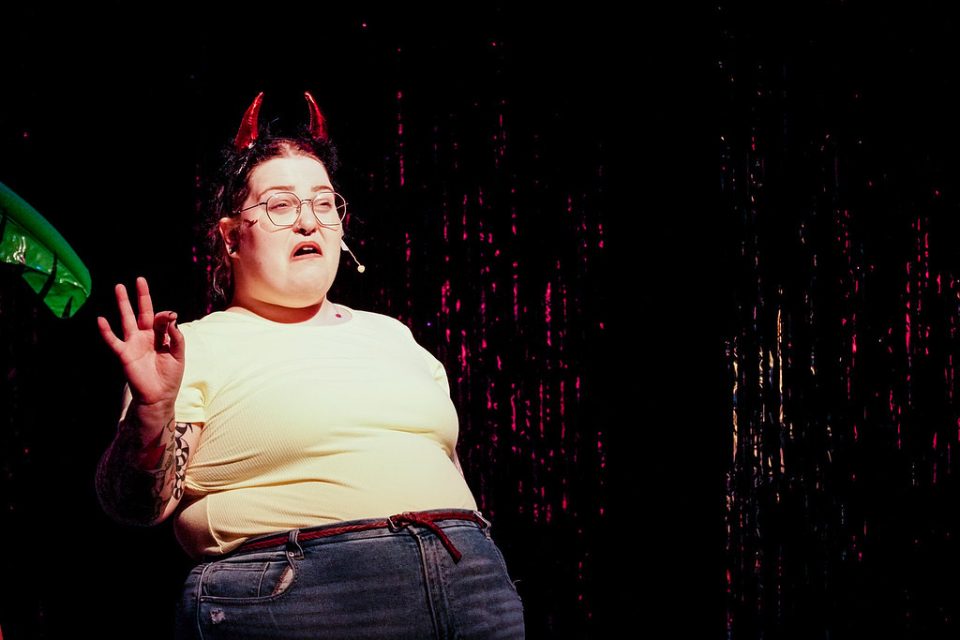
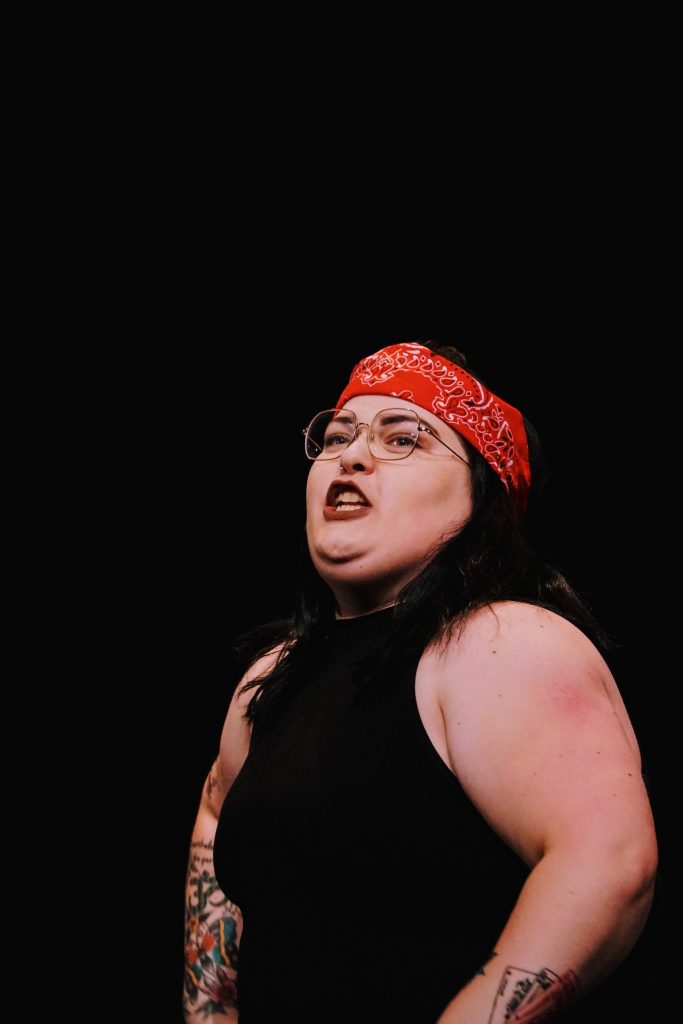
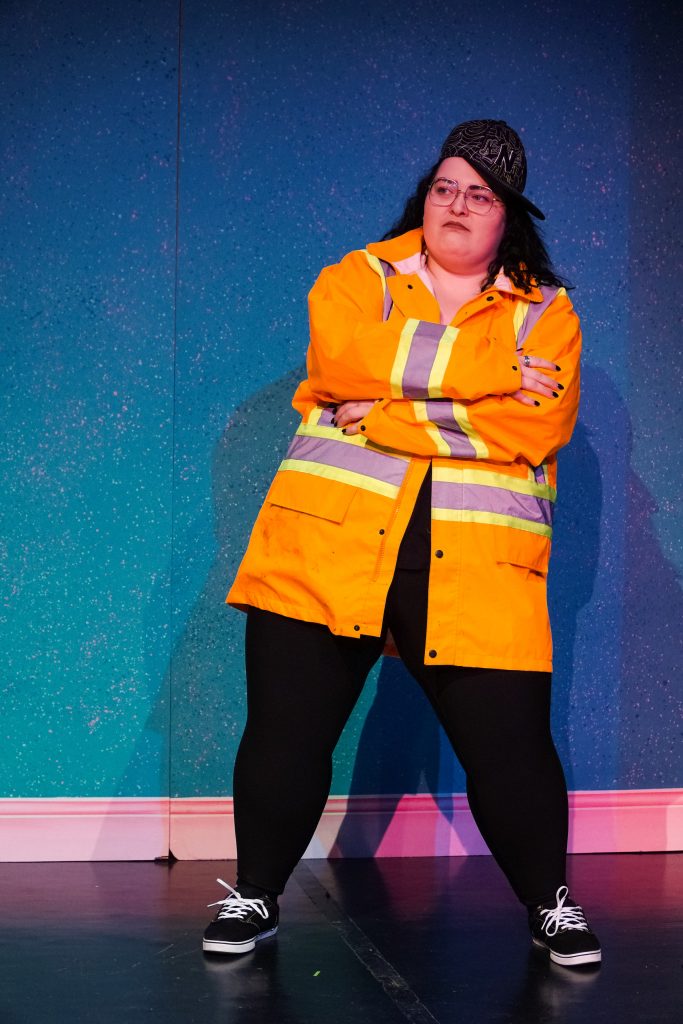
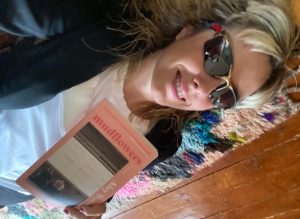

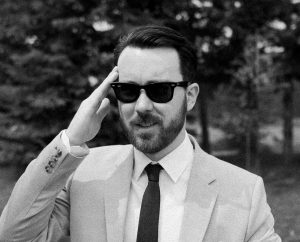
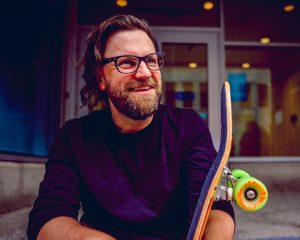
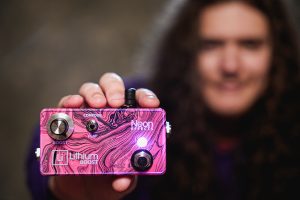

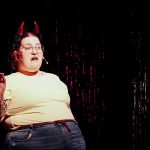
Leave A Reply